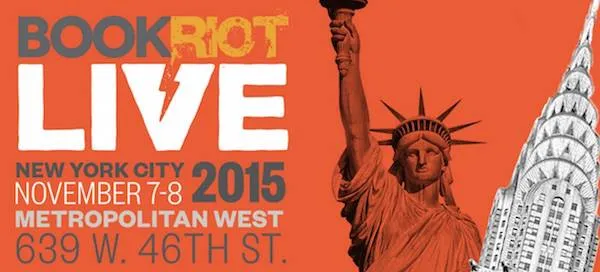
Size Matters: Long Novels vs Short Novels (+ 10 Recommendations)
This is a guest post from Margret Aldrich, a writer and editor who has worked with authors from American Indian activist Winona LaDuke to punk-rock guitar legend Cheetah Chrome. Her book about Little Free Libraries comes out from Coffee House Press next spring. Follow her on Twitter @mmaldrich.
_________________________
Every day for weeks—for months—a boy in my third-grade class lugged Tolstoy’s behemoth War and Peace to school in his backpack. He pulled it out to read at his desk during any moment of free time, proudly turning each of the 1,408 pages the way other grade-schoolers might milk bravado from eating a worm at recess.
The massive undertaking was admirable—if a little insufferable—and the rest of us were impressed, sure that one-thousand-plus pages equaled really-freaking-important. No one disturbed Ryan as he read. Bets were placed on how long it would take him to finish the book. (Three weeks! Ten years! Never!) Theories were formed around how much it weighed. (Ten pounds! Fifty!) Ryan, of course, didn’t have time to theorize. He had a higher calling: reading.
A reverence for big books stuck with me through my early school years, and I happily plodded through the 1,024 pages of Gone With the Wind, 1,104 pages of Stephen King’s It, 840 pages of The Brothers Karamazov, and 864 pages of Lonesome Dove. (Thanks for the introduction to Larry McMurty, 1989 TV miniseries starring Ricky Schroeder.) In the summertime, I often had all day to read, lounging in the grove of elm trees on our Iowa farmstead with nothing but a blanket, a bottle of Coke, and a book. And the longer the book was, the more time there was to savor every detail of the story. Flipping through page after page, I could sink into a subplot, ruminate on a passage of dialogue, and get to know the subtlest nuances of a character.
Then came the book-filled syllabi of higher education; editorial jobs packed with manuscripts, journals, and marketing reports; and a new appreciation for the slender novel. This was the era of one- or two-night stands of the literary kind. I welcomed Pnin (184 pages), The Great Gatsby (176 pages), Sula (192 pages), Balzac and the Little Chinese Seamstress (184 pages), and other skillful, speedy books.
Though longer novels shared my bedside table during this phase, too, anything over five hundred pages was daunting and often took months to read (I’m talking about you, Infinite Jest and The Corrections)—interrupted by magazine essays, short story collections, books of poetry, and other distractions lighter in physical weight if not content. Due to my long-book moratorium, I had avoided Haruki Murakami, but finally picked up 1Q84 (1,184 pages) after reading a beautiful review. It was the first book I’d spent long, drawn-out, dedicated time with in ages. We went through two seasons together, holidays together. I wasn’t just reading this book, we were cohabitating, and I missed it when it was over.
Now, I’m left wondering: Do I choose something from my long-book list or short-book list next? (Not to mention all the lovely 200-, 300-, and 400-page books to be read.) Do I want a clever, slim book, masterful in craft and restraint (and that’s easy to carry from coffee shop to lakeside) or a more substantial book that will let me in on all of its characters’ secrets—but is a bear to jam in a suitcase? Here are some of the contenders (and, no, War and Peace isn’t on my list):
The Long:
The Interestings by Meg Wolitzer, 560 pages
The Goldfinch by Donna Tartt, 775 pages
Anna Karenina by Leo Tolstoy, 976 pages
Tree of Smoke by Denis Johnson, 720 pages
Les Miserables by Victor Hugo, 1,472 pages (I thought I’d already read this in high school but recently learned it was the abridged version. Abridged!)
The Short:
Visitation by Jenny Erpenbeck, 192 pages
Leaving the Atocha Station by Ben Lerner, 186 pages
Waiting for the Barbarians by J. M. Coetzee, 192 pages
The Alchemist by Paulo Coelho, 197 pages
The Metamorphosis by Franz Kafka, 128 pages (At barely over a hundred pages, and with a new translation by Susan Bernofsky, there’s no excuse not to read this immediately.)
What are your favorite long and short novels, and what ones are on your to-read list? Do you enjoy a quick read or a long, involved relationship with a book?
Note: Page counts for the books included in this post vary based on edition.
____________________
Book Riot Live is coming! Join us for a two-day event full of books, authors, and an all around good time. It’s the convention for book lovers that we’ve always wanted to attend. So we are doing it ourselves.













